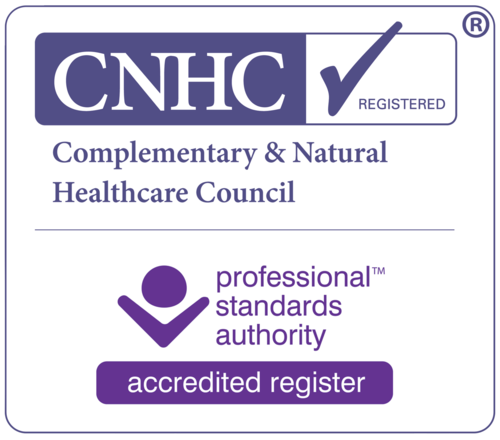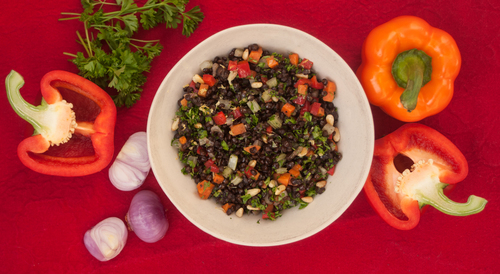The Importance of vitamin D
Vitamin D is actually more like a hormone than a vitamin and plays a key role in many systems in the body, including:
Calcium absorption
Bone and muscle strength
Immune function
Cardiovascular function
Glucose metabolism
Studies have shown strong links between vitamin D intake and protection from cancer and inflammation. Deficiency has also been implicated in several auto-immune conditions and depression.
What is vitamin D and how do we get it?
Vitamin D is not a single substance, but actually a group of several similar, oil-soluble pro-hormones called secosteroids. There are two major forms: vitamin D2 (ergocalciferol), which is found in plants, and vitamin D3 (cholecalciferol). It is the latter, vitamin D3 that is most important for our health.
Reasonable levels of vitamin D3 are only naturally found in a few foods including oily fish like salmon, sardines and mackerel with fish liver oils being the best sources. Smaller amounts are found in beef liver, cheese and egg yolks. Fortified foods containing vitamin D2 include breakfast cereals, some yoghurts and diary replacement drinks. It is therefore difficult to achieve optimal vitamin D3 intake from food sources alone.
The major source of vitamin D is sunshine. Vitamin D is primarily manufactured in the skin on contact with sunshine. When we expose our skin to sunlight a compound naturally present in our skin, called 7-dehydocholesterol, reacts with UVB light 1 to create vitamin D3.
Am I at risk of vitamin D deficiency?
In the UK, during the winter months, UV levels are not high enough for us to make vitamin D even with regular time spent outdoors. In the summer, or on holiday, the government’s advice is to avoid prolonged sun exposure, to use sun screen and to cover up in order to protect against skin cancer. Many people work indoors and the popularity of indoor pursuits such as gaming, TV and the draw of social media may mean lack of adequate sun exposure. Other considerations include skin colour, as dark-skinned people need longer sun exposure to make enough vitamin D. As we age, we become less efficient at making vitamin D. In addition because vitamin D is stored in fat cells it becomes less bio-available in people with large fat stores. Also some genetic variants in vitamin D metabolism and vitamin D-receptor genes, mean for some their ability to convert vitamin D into a usable form is compromised. So, you can see, there may be increasing numbers of people at possible risk of vitamin D deficiency.
Getting sufficient, safe, sun exposure during the summer months is really important. The vitamin D council recommends:
“You don’t need to tan or burn your skin to get vitamin D. You only need to expose your skin for around half the time it takes for your skin to begin to burn. How much vitamin D is produced from sunlight depends on the time of day, where you live in the world and the color of your skin. The more skin you expose the more vitamin D is produced…. In fact, your body can produce 10,000 to 25,000 IU of vitamin D in just a little under the time it takes for your skin to begin to burn. You make the most vitamin D when you expose a large area of your skin, such as your back, rather than a small area such as your face or arms.”
How much is enough and how do I know if I’m deficient?
Your body stores any extra vitamin D, for use later, so you may have sufficient amounts from summer sun exposure well into the autumn and winter, but testing your vitamin D levels may be advisable to check your levels if you haven’t spent much time outdoors over the summer, or are at risk of deficiency for the other reasons mentions. Supplementation, at the correct dose, can ensure healthy levels of vitamin D are maintained over the winter months and into spring.
Your doctor may be willing to test your levels, in some circumstances, but at-home testing, from a pin-prick sample of blood is also available to give a good indicator of your status.
The Vitamin D Council recommends maintaining serum levels of 25(OH)D at around 50 ng/ml or 125nmol/L and your NHS GP would be happy with levels of around 30 ng/ml or 75nmol/L
Can you get too much vitamin D?
From sun exposure, no, because your body stops making vitamin D when it has enough. But of course, it is important not to over expose your skin to the sun and cause skin damage.
From supplements, yes. Too much vitamin D can be problematic and at very high levels can cause vitamin D toxicity and result in high levels of calcium in the blood. So, it is important to seek advice regarding high level vitamin D supplementation.
We also know that vitamin D does not work in isolation, other vitamins including vitamin K and A and the mineral magnesium are also important so taking vitamin D supplements without sufficient levels of these nutrients in your diet is not advisable.
Kite-flying on Hove Beach
The bottom line on vitamin D
Getting regular, safe, sun-exposure is important. It helps us naturally make vitamin D and feels great.
There are many other benefits from spending time outdoors including:
Feeling more energetic
Helping your vision
Balancing your immune system
Enhancing creativity
Boosting your mood
Feeling in touch with nature
In the winter, or if you feel you may be at risk of deficiency, get your vitamin D levels checked and seek professional advice on supplementation. Eating a diverse range of nutrient-dense foods, including plenty of vegetables is also important.
References available on request





